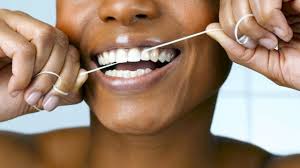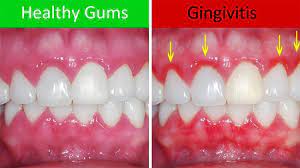Bad Breath
Halitosis or Bad breath
Bad breath, also known as halitosis, is an unpleasant odor coming from the mouth. It can be caused by a variety of factors such as poor oral hygiene, certain foods and drinks, dry mouth, infection in the mouth or sinuses, medical conditions, and even smoking. The most common cause of bad breath is poor oral hygiene resulting in bacteria buildup on the tongue and other surfaces. Poor dental care may also contribute to bad breath. Other causes include certain medications that create a dry feeling in the mouth or cause an increase in bacteria levels. Eating strongly-flavored foods such as garlic and onions can also cause bad breath. People who don’t drink enough water or who have health conditions that limit saliva production can suffer from dry mouth which leads to bad breath. When left untreated, bad breath could be a symptom of a more serious health condition like diabetes or GERD (gastroesophageal reflux disease). Therefore it is important to visit your dentist regularly and practice good oral hygiene habits to prevent bad breath and maintain overall health. Please keep reading for details on the following topics:
Causes of bad breath
How to prevent bad breath
Food items to avoid
Foods that freshen the mouth
Gingivitis

Causes of bad breath
After sleeping
A food item (garlic)
poor dental hygiene
Genetics
Tooth decay
Gum disease
Diabetic ketoacidosis (a complication of diabetes)
Digestive disorder
Kidney failure
Sinus problems
Lung infection
Vitamin deficiency
Cancer of the mouth
Presence of bacteria in the mouth
Alcohol use
Smoking
Dry mouth
Mouth breathing for prolonged periods of time
Certain medications such as (antidepressants, antihistamines, blood pressure medication, anxiety drugs, diuretics)

How to prevent bad breath
Practicing good dental hygiene (brushing and flossing the mouth properly, especially the hard-to-reach places such as the back of the tongue, pallet, gums, and teeth)
Brush the teeth and tongue at least twice daily
Flossing the teeth at least once daily
Clean the dentures and other dental appliances regularly
Visiting the dentist at least every 6 months
Drink plenty water
Cut back on the amount of sugar ingested
Use dentist-recommended mouthwash to wash away bacteria from the mouth
Replace old toothbrush with a new one every 3 months
Following the above recommendations
Food to avoid
Alcohol dries out the saliva in the mouth, making it easier for bacteria to survive
Garlic
Smelly cheese
Spicy foods
Onions
Fatty foods
Protein-rich foods such as eggs, fish and meat
Coffee
Tobacco products
Dairy products
Sugars
Soft drinks
Food that freshens the mouth
Sugarless gum stimulates saliva production and washes away bacteria from the mouth
Fiber-rich foods help brush off bacteria from the back of the tongue
Parsley
Mint
Guava peel
Cinnamon
Dill
Oregano
Sugar-free yogurt
Cranberries
Wheat bran
Apple
Gingivitis

Gingivitis is an inflammation of the gums caused by the buildup of plaque and bacteria on the surface of teeth. It is a common condition that affects millions of people worldwide and is one of the most prevalent oral health problems. The early stage of gingivitis often involves red, swollen, and tender gums that tend to bleed easily when brushing or flossing. If left untreated, gingivitis can potentially lead to periodontal disease, which involves destruction of tissue and bone around teeth that can ultimately result in tooth loss. In some cases, gum recession may also occur due to prolonged inflammation. The best way to combat gingivitis is good oral hygiene practices such as brushing regularly with fluoride toothpaste and flossing at least once a day to remove plaque and bacteria from teeth surfaces.
Causes of gingivitis
The accumulation of food and germs around the teeth
Symptoms of gingivitis
Redness, swelling, and irritation to the gums
Toothache
Bad breath
Bleeding gums
Mouth sores
Abnormal coloration of the gums
Cavities
Bad taste in the mouth

